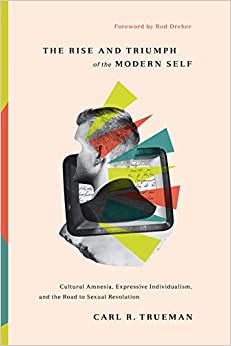Truth, Love & Making People Sad
 by Matthew Hosier, Think Theology:
by Matthew Hosier, Think Theology:
The bishop’s ‘journey’ on this follows a familiar path, a response that is primarily emotional, governed by the impact of his church’s decisions on the feelings of others.
“I need to acknowledge the acute pain and distress of LGBTQ+ people in the life of the Church,” he wrote.
“I am sorry that, corporately, we have been so slow as a Church to reach better decisions and practice on these matters.
“I am sorry that my own views were slow to change and that my actions, and lack of action, have caused genuine hurt, disagreement and pain.”
Contrast this with the more robust approach described by Carl Trueman in The Rise and Triumph of the Modern Self.
If sex-as-identity is itself a category mistake, then the narratives of suffering, exclusion, and refusals of recognition based on that category mistake are really of no significance in determining what the church’s position on homosexuality should be. That is not to say that pastoral strategies aimed at individuals should not be compassionate, but what is and is not compassionate must always rest on deeper, transcendent commitments. Christianity…is dogmatic, doctrinal, assertive.
According to Trueman, the decisions of the church should not be made in response to their emotional impact: ‘truth’ is a bigger, and harder-edged, category than what I, the bishop, or anyone else feels about things.
In Mark’s account of the encounter between Jesus and the rich young ruler we are told that,
Jesus looked at him and loved him. ‘One thing you lack,’ he said. ‘Go, sell everything you have and give to the poor, and you will have treasure in heaven. Then come, follow me.’ At this the man’s face fell. He went away sad, because he had great wealth. (Mark 10:21-22)





